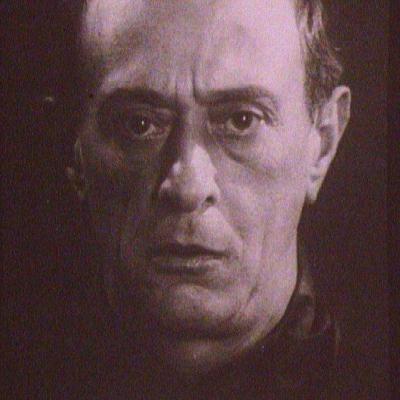
The Language of the New Music (Schoenberg, Wittgenstein)
At the close of the 19th century, Vienna presented to the world a picture of ordered elegance and dignified gaiety, but beneath the surface the corruption and hollowness of the late Hapsburg Empire produced widespread and deep-seated confusion and so set the stage for some of the profoundest meditations on the nature of human experience that the 20th century has yet produced. Vienna was the scene of the intellectual and artistic struggles of many of the seminal minds of our time; among them, Karl Kraus, Robert Musil, Georg Trakl, Otto Wagner and Adolf Loos, Gustav Klimt, Egon Schiele and Oscar Kokoshka, Sigmund Freud, Gustav Mahler, Arnold Schoenberg and Ludwig Wittgenstein.
THE LANGUAGE OF THE NEW MUSIC is a film about the work and ideas of two of these men, who changed the course of European thought: Arnold Schoenberg and Ludwig Wittgenstein.
The two men never met, although they were close contemporaries and had common friends in Viennese intellectual society. Why put them together? Because their work springs from the same soil and shares a common ethical purpose; so much so that the development of their ideas runs parallel throughout their lives in an extraordinary and very illuminating way.
As young men both made bold strides into the unknown and with lasting effect: Schoenberg produced the great masterpieces of what has come to be known as his atonal period and set himself on a road that would make him the most influential musician and teacher of our age; Wittgenstein wrote the Tractatus Logico Philosophicus, which is arguably the most influential single philosophical text of the twentieth century. The languages of the new music and the new philosophy reflected a world transformed almost beyond recognition, but, at the same time, they embodied a sharply critical intention and paved the way for a new epoch in European history. Then, partly as a consequence of the First World War, both found themselves at odds with the spirit of contemporary European civilization and, for a time, both fell silent. When they started again, both saw themselves struggling with what Wittgenstein called “the darkness of this time” and both directed a new attention to tradition and custom in an attempt to integrate the advances of their early work with the cultural inheritance of the eighteenth and nineteenth centuries. Both then died in exile, Ludwig Wittgenstein in Cambridge and Arnold Schoenberg in Los Angeles and both in the same year - 1951. They are without question among the principal architects of the imagination of our time and yet both are still widely regarded as difficult or impossible to comprehend.
We have tried therefore to make a film not about their lives but about their ideas. Whether that is possible or even a good idea for television is for the audience to judge.
“When people speak of me, they immediately connect me in horror with atonality and with composition with twelve notes. Perhaps they do not sufficiently consider that I am trying to say something which cannot be so easily or immediately grasped.” - Arnold Schoenberg
“Perhaps one day this civilization will produce a culture. When that happens, there will be a real history of the discoveries of the eighteenth, nineteenth and twentieth centuries.” - Ludwig Wittgenstein
